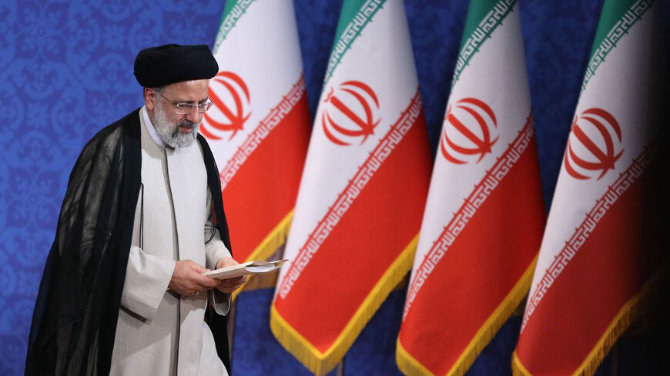
In a little over two weeks, US President Donald Trump will have decided whether to give up on or keep the nuclear deal with Iran. Either way, this decision will have many important consequences.
But before talking about what the resolution means, we have to know the atmosphere that surrounds it. The French President Emmanuel Macron, who supports the Joint Comprehensive Plan of Action (JCPOA) with Iran, came to Washington this week in the hope of persuading Trump to continue with it. Germany’s Chancellor Angela Merkel will also travel to Washington specifically to talk about the deal, and her position is similar to that of Macron. Saudi Crown Prince Mohammed bin Salman, who opposes the agreement, visited the White House before them.
The Iranians, on their part, are tryingto anticipate and influence Trump’s decision, due on May 12, through speeches and statements with different messages ranging from intimidation to stimulation. The Iranian regime threatens Trump over the security of the region, Israel and the United States, while whispering at the same time that it is ready to make concessions. There is no doubt that Tehran is frightened and very worried about Trump’s decision, and has promised to make some attractive concessions, including the release of American prisoners, in return for Washington not breaking the agreement.
The position of the Trump administration, expressed several times, is that it opposes the deal negotiated and signed by his predecessor, Barack Obama, three years ago.
Trump believes that even though the agreement suspends the enrichment of nuclear material for military purposes, it has given Iran free rein militarily in the region. It has allowed it to become a massively destructive force in Syria and Yemen, expanding its sway after the military agreement in Iraq, and becoming more active in Lebanon and Gaza.
Moreover, Trump thinks the agreement is unfair to his country and damaging its interests in the region and; above all, that huge amounts of money paid as compensation to the Iranian regime, some of which were Iranian funds seized after the Iranian revolution.
A compromise with Tehran is likely due to the intervention of Europeans, who are very keen to maintain the agreement they were involved in drafting and signing.
Abdulrahman Al-Rashed
The real aim is not to cancel the JCPOA, as some erroneously believe, but rather to renegotiate Iran’s obligations under the agreement. The harsh economic sanctions against Tehran, which subdued the regime, have all been lifted, although they originally were imposed in response to Iran’s dangerous practices in the region, and its threats to the interests of the United States.
The JCPOA has only limited Iran’s nuclear activity, for which Tehran compensated by increasing its military and terrorist activities in the region. Iran has actually become more dangerous and aggressive since the agreement. The Tehran regime is largely responsible for almost half a million deaths in Syria, the failure of the central government in Baghdad, as well as overthrowing the legitimate government in Yemen and financing the war against Saudi Arabia there.
Nonetheless, a compromise with Tehran is likely due to the intervention of Europeans, who are very keen to maintain the agreement they were involved in drafting and signing. The Europeans are not really interested in curbing Iran. On their own, they neither have the military capability to deter the Iranians, nor the eagerness to challenge them. They believe that stopping Iran’s military nuclear project is a great achievement in itself, and that Middle Eastern countries can solve their own problems regardless of the human and material costs. This is the view of the Europeans; and now they are terrified that Trump might break an agreement that they worked for five years to accomplish.
Then there are the positions on the issue in the Gulf and Israel. Riyadh views the agreement as deficient and is placing its trust in a regime with a bloody history, rather than setting conditions to ensure its good conduct. Israel, on the other hand, criticizes the agreement because it is temporary, suspending Iran’s nuclear activity for only 10 years instead of ending it. Recently, however, the Israelis have also criticized it for failing to take Iran’s regional conduct into consideration.
If, as expected, Mike Pompeo receives Senate approval to become US Secretary of State this week, we will have a good duo in place in key roles: Pompeo and John Bolton, who was appointed National Security Adviser on April 9, 2018. The two men have a clear opposition on the agreement, but this does not necessarily mean they will succeed in pushing Trump to reject it, given the multiple opposite pressures.
Thus, there are three possibilities: the rejection of the agreement, the acceptance of the agreement as it stands, or making limited amendments based on the mediation of Europe and Iran’s approval.
Abdulrahman Al-Rashed is a veteran columnist. He is the former general manager of Al Arabiya news channel, and former editor-in-chief of Asharq Al-Awsat.
Twitter: @aalrashed












